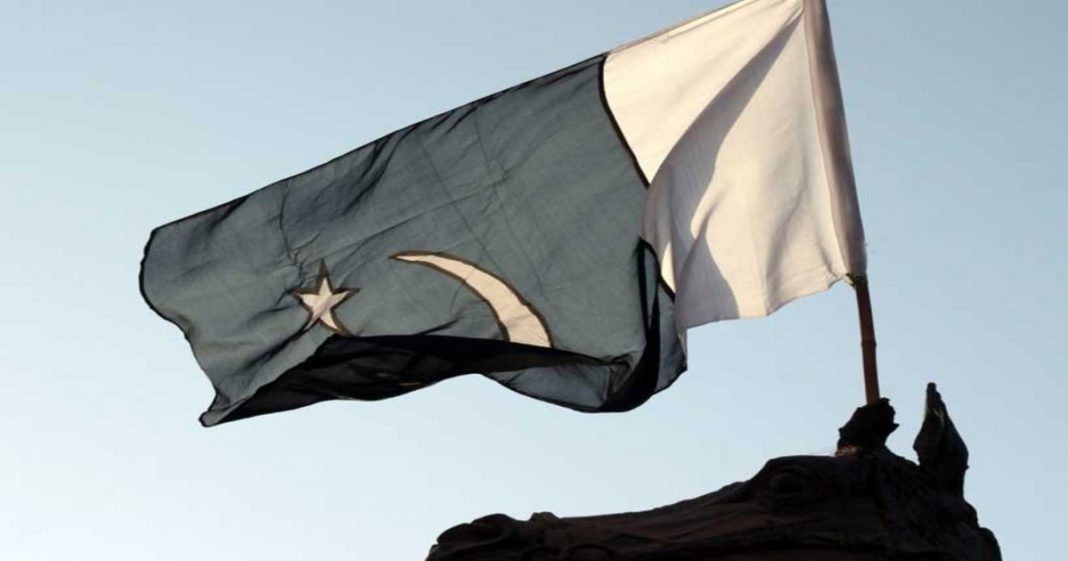|Huzaima Bukhari & Dr Ikramul Haq
“A judge is to apply the Constitution according to the principles intended by those who ratified the document”—Robert H Bork, who failed to win confirmation as a judge to the U.S. Supreme Court in 1987.
Advocates of the theory of ‘original intent’ adamantly argue that judges should follow the letter of law and not make law, which is the exclusive domain of the legislature. In the name of interpreting the law, they contend, judges cannot be allowed to apply their own ideologies and preferences to the decisions they call upon to reach—such actions lead to “judicial anarchy”.
The critique of Church of Holy Trinity v United States (1892) by Justice Antonin Scalia as “nothing but an invitation to judicial lawmaking” came under attack by the anthropologist Vincent Crapanzano who pointed out that “original intent does not offer a fixed standard that can serve as an inoculation against interpretation but in itself, an interpretation, one with its own, often divisive and partisan, view of the decisions judges ought to be taking”.
Read more: Pakistan’s counter lawfare against US Senate Bill must start now!
The debate about ‘original intent’ versus “judicial lawmaking” has assumed great relevance in Pakistan in the light of prevalent judicial activism—considered by many as a remedy for all ills—perceived as a threat for democracy by many, including the government. Unelected judges, politicians in power claim, have no authority to “impose their will on the Parliament—rather on the entire nation as a whole”.
Decisions of courts, as Bork puts it, “might be made subject to modifications or reversal by a majority vote of the Senate and House of Representatives. Alternatively, courts might be deprived of the power of constitutional review”. Bork’s ideas about curtailing the powers of the judiciary, elaborated in detail in his book, The Tempting of America: The Political Solution of the Law, go to the extent that “an elected official will one day simply refuse to comply with a Supreme Court decision”.
Since the bizarre episode of March 9, 2007, there lurks a continuous tug of war between the proponents of cronyism and advocates of rule of law. Cronies of establishment, most of whom are now sitting with Imran-led PTI, want a free hand to plunder the wealth of the nation, subjugate their own people, deny them human rights and ensure that there is no room for radical judicial activism in this society as a means to empower the have-nots.
This is why the radical judiciary is a threat to both corrupt elected-members (sic) and military-civil complex thriving on State resources. The ruling classes cannot afford radical judiciary (so-called independent may be) for obvious vested interests—the present judicial structure is part of the status quo and not a catalyst for change as wrongly assumed by many.
Read more: Pakistan’s biggest issue is rule of law not corruption
Advocates of rule of law rightly argue that dispensation of justice for the poor is not possible unless a competent and efficient judiciary replaces the existing one. Justice at grass root level alone can establish a responsible government and an equitable social order, which is sine qua non of constitutional democracy.
Pakistan: A country ruined by undemocratic rulers
It is now the sole responsibility of all democratic forces to galvanize and mobilize people to enforce constitutionalism in Pakistan. We have one of the worst court systems in the world. People are dying of hunger and courts are busy in what they call “interpretation of law”, which itself is a mockery of rule of law. Political questions cannot be resolved in the courts, yet our apex court is unsuccessfully pursuing this Sisyphean task.
Since our judiciary in the past endorsed military take-overs, the entire society is facing devastating effects of perpetual undemocratic rules—military and civilian alike. The main cause of our present-day socio-political and economic chaos is corrupt and ineffectual leadership, the existence of repressive institutions (military, civil and judicial) which are essentially anti-people—they are least concerned with the welfare of the common man.
We must realize that at the heart of the concept of constitutional democracy is the assurance for citizens that their inalienable rights are going to be respected and implemented by the people elected by them.
Read more: How Pakistan’s human rights campaign is flawed beyond deceit
The constitution of a country is a living and vibrant document that determines the future direction of a nation, provided there is respect for the document and for rule of law. In a country where the establishment controls all the institutions, there can neither be democracy nor a constitution. It is high time that the parliament should work for the supremacy of the constitution and rule of law.
In a democratic setup, the electoral process ensures the dominance of the people over those who hold political offices. In Pakistan, forces of the status quo want to determine it through a leadership lacking the support of the masses. This brand of ‘democracy’ is unknown to students of constitutional law anywhere in the world. One wonders what useful purpose this unjust and unlawful process can yield! It is only bound to frustrate the people’s verdict, forcing them to believe that the entire electoral process was just a farce.
“Ultimately, Pakistan’s top court removed Sharif from office as a result of an inquiry sparked by the Panama Papers. Khan swept in to replace him in the next national election”.https://t.co/i53rJY9ENG https://t.co/Z354dEBv73
— Dr. Ikramul Haq (@DrIkramulHaq) October 14, 2021
Read more: Is democracy really the best political system?
Military rulers have always posed themselves as saviors of the nation, whereas the reality is that under their rule, we lost not only one part of the country but also economic and political independence, elected politicians (hanged, killed, or exiled), and innocent people (missing or killed in suicide bombings). Civilian rulers, following in the footsteps of military dictators, have also deprived the citizens of fundamental rights of access to free health, educational facilities, and dispensation of justice.
Constitutional rule: The only remedy
The only remedy left for the masses is to resist all kinds of undemocratic postures and work for constitutionalism. All the State organs must discharge their functions within strict parameters and powers laid down in the supreme law of the land. This is the only way to sustain democracy, establish responsible government and protect the rights of the masses guaranteed in the Constitution. The legislature is sovereign but the supremacy of the constitution is above everything— legislators in fact exercise delegated powers given by the people within the framework of the Constitution.
Georges-Augustin Bidault ((1899– 1983), a French politician who was active in the French Resistance and after World War II served as foreign minister and prime minister on several occasions, very aptly obverses: “Good or bad, the fortune of a nation depends on three factors; its Constitution, the way the Constitution is made to work, and the respect it inspires”.
We need a Pakistan where the people of Pakistan are truly represented by elected members within the four corners of the Constitution. To attain this goal, the masses will have to demonstrate determination and unity and the right exercise of their votes. Pro-democratic forces, with the people’s strong support behind them, must wage an all-out war for establishing a constitutional rule. A responsible media can play a vital role for effective accountability of all—exposing the vested interest, highlighting the program for economic growth with equitable distribution of national resources, and social justice for all.
Read more: True democracy in Pakistan needs the 1973 Constitution to be followed
Huzaima Bukhari & Dr. Ikramul Haq, lawyers, and partners of Huzaima, Ikram & Ijaz, are Adjunct Faculty at Lahore University of Management Sciences (LUMS), members of Advisory Board and Visiting Senior Fellows of Pakistan Institute of Development Economics (PIDE). The views expressed in the article are the writers’ own and do not necessarily reflect the editorial policy of Global Village Space.















